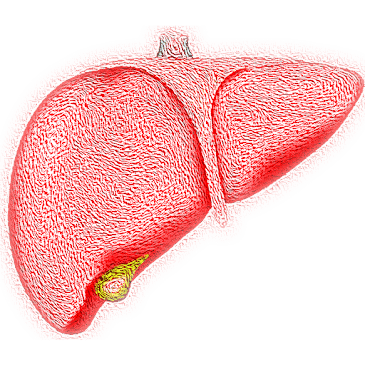Diarrhea is an uncomfortable condition that can have many causes. One of the lesser-known causes of diarrhea is liver disease. While the exact connection between the two is not fully understood, there is evidence to suggest that certain types of liver disease can cause diarrhea. In this blog post, we will discuss the link between liver disease and diarrhea, and explore how people with liver disease can manage their symptoms.
The unexpected cause of diarrhea
- Cirrhosis
- Hepatitis
- Alcoholic hepatitis
- Autoimmune hepatitis
- Fatty liver disease
The most common cause of cirrhosis is chronic alcohol abuse, but it can also be caused by other health conditions such as hepatitis B or C. Cirrhosis can cause the production of toxins in the liver, which can lead to a buildup in the digestive system, causing diarrhea. The liver also plays an important role in the digestion of food and when it is unable to do its job correctly, food particles pass through the intestine more quickly, resulting in loose stools.
If you are suffering from diarrhea and have been diagnosed with liver disease, you must speak with your doctor about potential causes and treatments. Treating cirrhosis with lifestyle changes and medications can help to manage your symptoms and keep them under control.
Hepatitis
Diarrhea is a common symptom of hepatitis and should not be ignored. If you have been diagnosed with hepatitis and are experiencing diarrhea, it is important to speak to your doctor about your treatment options. Some medications can worsen or even cause diarrhea in patients with liver disease. Your doctor will help you decide your condition's best course of action. There are many causes of diarrhea other than liver disease so if you experience any symptoms that last more than three days consult your physician immediately.
Alcoholic hepatitis
Diarrhea caused by alcoholic hepatitis may be mild or severe and can persist for several days. People with alcoholic hepatitis may also experience nausea and vomiting. The severity of diarrhea will depend on the amount of damage to the liver, as well as the person's overall health.
Treatment for alcoholic hepatitis includes abstaining from alcohol and any other substances that can damage the liver. Additionally, medications such as corticosteroids or immunosuppressive drugs can be used to reduce inflammation and reduce symptoms. Lifestyle changes can also help to improve liver health, including eating a balanced diet and avoiding fatty foods.
If left untreated, alcoholic hepatitis can lead to cirrhosis or even liver failure. If you have symptoms of liver disease or have been drinking heavily for an extended period of time, it is important to talk to your doctor about getting tested for liver disease. Early diagnosis and treatment can help prevent further complications from developing.
Autoimmune hepatitis
Diarrhea caused by autoimmune hepatitis can vary in severity depending on the amount of damage done to the liver. For some people, it may be minor and intermittent, while for others it can be severe and persistent. In either case, it is important to seek medical attention if you experience any signs of autoimmune hepatitis, such as jaundice, fatigue, fever, abdominal pain, and appetite loss.
When diagnosed with autoimmune hepatitis, it is important to work with your doctor to create an individualized treatment plan. This could include corticosteroids, azathioprine, or methotrexate to reduce inflammation and protect the liver. Diet modifications and lifestyle changes may also be recommended to reduce strain on the liver and help manage symptoms, including diarrhea. If you have questions about how diet and lifestyle changes might affect your liver disease, talk with a healthcare provider.
Fatty liver disease
When it comes to understanding why liver disease can cause diarrhea, it’s important to understand the specific type of liver disease that is at play. Fatty liver disease, also known as nonalcoholic fatty liver disease (NAFLD), is the most common cause of liver disease and can lead to a host of health issues, including diarrhea.
In addition, fatty liver disease can damage the small intestine and lead to malabsorption. Malabsorption is a condition in which your small intestine fails to absorb certain nutrients from your food, resulting in further digestion problems and an increased risk of diarrhea.
If you have been diagnosed with fatty liver disease, you should speak to your doctor about managing your symptoms and preventing further complications. This could include lifestyle changes such as eating a balanced diet, reducing alcohol intake, and exercising regularly. In more severe cases, medications may be necessary to reduce inflammation in the body or treat any other underlying health conditions that could be contributing to the problem.
The takeaway here is that fatty liver disease can cause diarrhea as a result of the extra bile production and malabsorption that comes along with this condition. If you are experiencing any signs of diarrhea, be sure to speak to your doctor to rule out any other potential causes.
